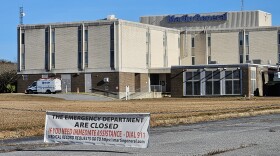Physicians who receive compensation from pharmaceutical companies for speaking engagements, food or travel were more likely to prescribe cancer-fighting drugs from those companies, according to new research from the University of North Carolina at Chapel Hill.
"We like to think that we treat our patients on the basis of two things and two things only: the best available medical evidence and patient preference," said Aaron Mitchell, a medical oncology fellow at UNC Lineberger Comprehensive Cancer Center, and lead author of the study. "(But) there are other things that may, in fact, influence our treatment choices. And one of those things may be conflicts of interest with the pharmaceutical industry."
Other studies have linked payments from the pharmaceutical industry to prescribing habits. However, this UNC study focused on cancer drugs.
"The drugs that we use to treat our patients here, are both far more toxic and far more expensive, than in most other branches of medicine. So choosing between different drugs is an even more serious and weighty decision to be taken and made very deliberately and cautiously," said Mitchell.
Specifically, the research team found that when doctors chose between multiple drugs for metastatic kidney cancer and chronic myeloid leukemia, they were more likely to prescribe drugs from the companies with which they had financial ties.
"This pattern is worrisome since promotional efforts by pharmaceutical companies tend to focus on newer products, which may steer providers and patients to more expensive treatments," said the study's senior author Stacie B. Dusetzina, a UNC Lineberger member and assistant professor in the UNC Eshelman School of Pharmacy and Gillings School of Global Public Health. "This could ultimately drive up costs for patients and taxpayers."
Doctors who received payments for meals and lodging from a drug manufacturer had higher odds of prescribing that company’s particular drug for both metastatic renal cell carcinoma, and for chromic myeloid leukemia, according to UNC. For renal cell carcinoma, odds were 78 percent higher, and for chronic myeloid leukemia, odds were 29 percent higher.
The average amount that physicians received in general payments was $566 for renal cell carcinoma, and $166 for chronic myeloid leukemia, according to the research.
"Even for physicians who received very small payments, we still saw a change in prescription rates," Mitchell said. "It looks like this shakes out to be a really good buy for a drug company."









